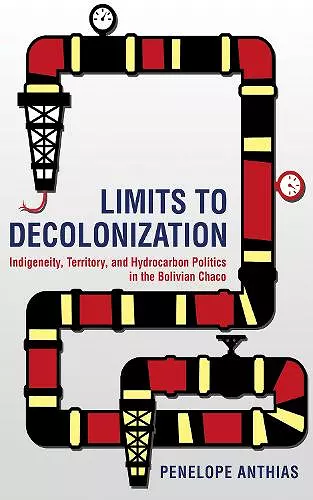Limits to Decolonization
Indigeneity, Territory, and Hydrocarbon Politics in the Bolivian Chaco
Format:Hardback
Publisher:Cornell University Press
Published:15th Mar '18
Currently unavailable, and unfortunately no date known when it will be back
This hardback is available in another edition too:
- Paperback£27.99(9781501714368)

Penelope Anthias’s Limits to Decolonization addresses one of the most important issues in contemporary indigenous politics: struggles for territory. Based on the experience of thirty-six Guaraní communities in the Bolivian Chaco, Anthias reveals how two decades of indigenous mapping and land titling have failed to reverse a historical trajectory of indigenous dispossession in the Bolivian lowlands. Through an ethnographic account of the "limits" the Guaraní have encountered over the course of their territorial claim—from state boundaries to landowner opposition to hydrocarbon development—Anthias raises critical questions about the role of maps and land titles in indigenous struggles for self-determination.
Anthias argues that these unresolved territorial claims are shaping the contours of an era of "post-neoliberal" politics in Bolivia. Limits to Decolonization reveals the surprising ways in which indigenous peoples are reframing their territorial projects in the context of this hydrocarbon state and drawing on their experiences of the limits of state recognition. The tensions of Bolivia’s "process of change" are revealed, as Limits to Decolonization rethinks current debates on cultural rights, resource politics, and Latin American leftist states. In sum, Anthias reveals the creative and pragmatic ways in which indigenous peoples contest and work within the limits of postcolonial rule in pursuit of their own visions of territorial autonomy.
Her critical reflections on decolonization will be of interest to anthropologists and geographers seeking a ground-up perspective on how extractive economies transform marginalized communities.
* Choice *Limits to Decolonization demonstrates the limitations of indigenous mapping as a liberatory project, and the emergence of a form of hydrocarbon citizenship, the cultural implications of which are as yet unclear. It is a most welcome addition to the growing literature on contemporary Bolivia.
* The AAG Review of Boo- Winner of Best Book in Race, Ethnicity, and Politics (Section on Race, Ethnicity, and Politics, American Political Science Association) 2019 (United States)
ISBN: 9781501714351
Dimensions: 229mm x 152mm x 27mm
Weight: 907g
312 pages